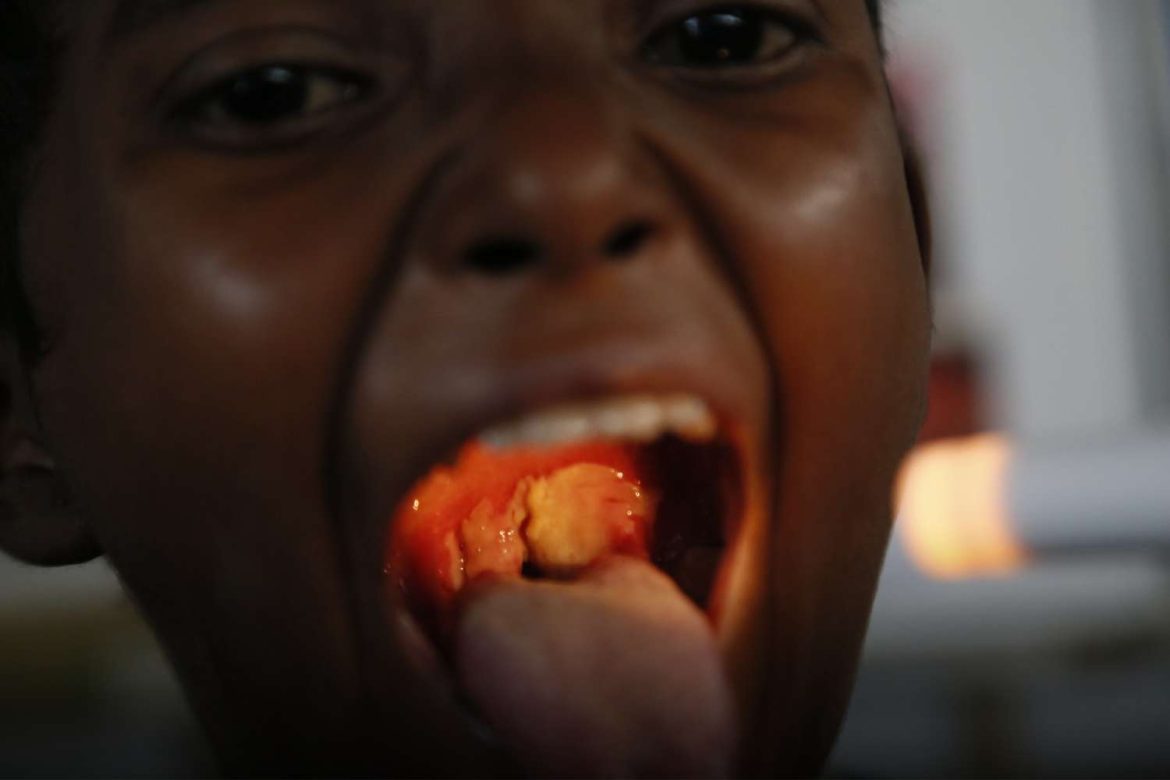Edo State faces a surge in suspected diphtheria cases. This past week, two lives were lost at the University of Benin Teaching Hospital (UBTH). Reports indicate UBTH is now overwhelmed with patients. This outbreak has sounded alarm bells, prompting an emergency public health response from the state government. They are deploying every resource to contain this silent, deadly threat and protect public health.
Governor Monday Okpebholo’s administration is fully aware of the outbreak, especially in certain areas. As an immediate step, 70 doses of anti-diphtheria vaccines went to UBTH, where recent deaths occurred. Hospitals statewide are on high alert. They have clear instructions to boost case detection, isolate suspected cases quickly, and manage patients properly. These actions follow national and international health guidelines. Medical personnel are being briefed and equipped. The state’s disease surveillance network is expanding to trace contacts swiftly.
The government is also moving fast to secure more life-saving vaccines. A widespread vaccination campaign is underway, focusing heavily on vulnerable groups, especially children. Public awareness campaigns are increasing across various platforms. Radio, television, community outreach, and social media are all used. They aim to teach citizens about diphtheria symptoms, how to prevent it, and the crucial need for early treatment.
Even school owners and proprietors now work with the government. They set up early warning systems, enforce hygiene standards, and conduct health screenings. This protects schoolchildren, who are among the most vulnerable. Governor Okpebholo also held a multi-sectoral emergency meeting. Representatives from the Nigerian Centre for Disease Control (NCDC), World Health Organisation (WHO), traditional rulers, religious leaders, and community groups attended. Their goal is to unite efforts and strengthen the fight against the disease.
Symptoms of Diphtheria
Diphtheria is a serious bacterial infection. It usually affects the nose and throat, but it can also impact the skin. Symptoms often appear two to five days after exposure to the bacteria. Importantly, some individuals can carry and spread the bacteria without showing any signs of illness themselves.
Common symptoms, especially those affecting the respiratory system, include a mild fever, a painful sore throat, swollen glands (enlarged lymph nodes) in the neck, and a general feeling of weakness. The most distinct and dangerous sign is a thick, tough, grey-white coating. Often called a “pseudomembrane,” this covers the back of the throat, tonsils, and nose. This membrane, made of dead cells, bacteria, and other substances, makes breathing and swallowing very difficult. This poses a life-threatening risk, particularly for young children.
If the diphtheria toxin enters the bloodstream, it can severely damage other organs. This includes the heart, possibly leading to myocarditis, and nerves, causing nerve damage or polyneuropathy. Kidney failure is also a risk. Skin diphtheria, though less severe, can cause painful, red, and swollen ulcers covered by a grey membrane.
Read Also: Prions The Silent Protein Threat Causing Brain Disease What You Need To Know
Treatment and Prevention Strategies
Treatment for diphtheria demands immediate action. It requires prompt and professional medical care; home treatment is not an option. Diphtheria Antitoxin (DAT) is the main treatment. It should be given as soon as possible, ideally within the first hour of hospital admission, after a sensitivity test. Early administration of the antitoxin greatly improves chances of avoiding severe complications and death.
Antibiotics, such as erythromycin, are vital to kill the bacteria and prevent further spread. Patients suspected or confirmed to have diphtheria must be isolated to stop transmission. Supportive care, including oxygen therapy, fluids, and nutritional support, is also provided as needed. In severe cases where breathing is badly blocked, a surgical procedure called a tracheostomy might be necessary to create an alternative airway.
Preventing diphtheria primarily relies on vaccination. The DTP vaccine protects against diphtheria, tetanus, and pertussis (whooping cough). This vaccine is part of routine childhood immunization in Nigeria. Ensuring children receive all recommended doses, and that adults get booster shots when advised, offers the best protection. The Edo State government is currently running a statewide vaccination campaign, targeting vulnerable populations.
Beyond vaccination, good hygiene practices are key. This includes regular handwashing and covering coughs and sneezes. Residents are urged to cooperate fully with health officials and actively join vaccination and awareness drives. Most importantly, report any suspected symptoms like sore throat, fever, swollen glands in the neck, or breathing difficulties to the nearest healthcare facility without delay.
